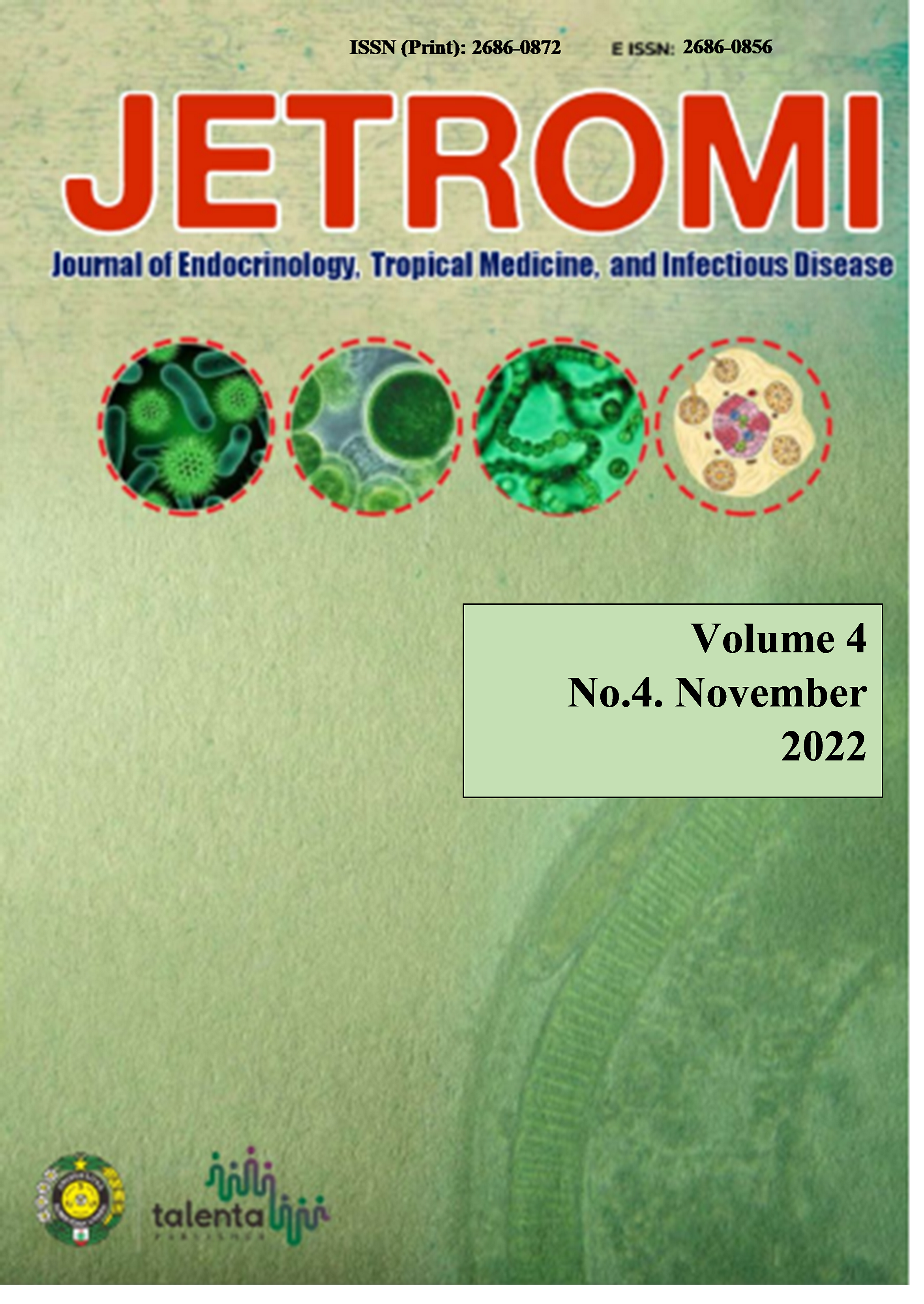The Association of the Neutrophil-Lymphocyte Ratio With Diabetes Mellitus and Diabetic Foot Ulcer: A Review Article
DOI:
https://doi.org/10.32734/jetromi.v4i4.14689Keywords:
DFU, Diabetes Mellitus, Diabetic Foot Ulcer, DM, Neuthophil Lymphocyte Ratio, NLR.Abstract
Introduction: Diabetes mellitus (DM) is inappropriately elevated blood glucose levels. Diabetic foot ulcer (DFU) is the most common complication of diabetes mellitus. Many research studies was found that neutrophil lymphocyte ratio (NLR) have positive correlation with HBA1C, blood glucose, and outcome of diabetic foot ulcer. Methods: The literature searches using online databases such as PubMed, ScienceDirect Elsevier, and Google Schoolar. Result: After doing an online search, we found 39 articles were relevant for this review topic. Analysis: Many research studies have found increased HbA1C (≥6,5) and increased blood glucose (random blood glucose ≥ 200mg/dL and/or fasting blood glucose ≥126 mg/dL) in patients with diabetes mellitus have a positive correlation with increased NLR. And there was increased NLR values in patients with diabetic foot ulcer and NLR values was higher (NLR≥6) in non-healing ulcers than in healing ulcers. Conclusion: NLR can be used as screening tool for determining evaluation of diabetes mellitus and as screening tool for determining outcome of diabetic foot ulcers.
Downloads
Downloads
Published
Issue
Section
License
Copyright (c) 2023 Journal of Endocrinology, Tropical Medicine, and Infectious Disease (JETROMI)

This work is licensed under a Creative Commons Attribution-NonCommercial-ShareAlike 4.0 International License.
The Authors submitting a manuscript do so on the understanding that if accepted for publication, copyright of the article shall be assigned to Journal of Endocrinology, Tropical Medicine and Infectious Diseases (JETROMI).
Copyright encompasses exclusive rights to reproduce and deliver the article in all form and media. The reproduction of any part of this journal, its storage in databases and its transmission by any form or media, will be allowed only with a written permission from Journal of Endocrinology, Tropical Medicine and Infectious Diseases (JETROMI).








